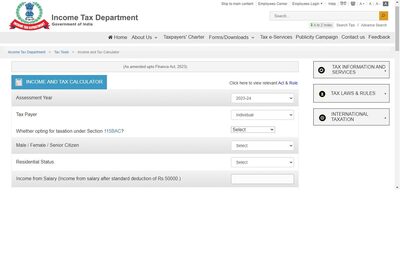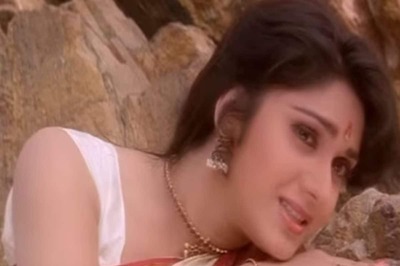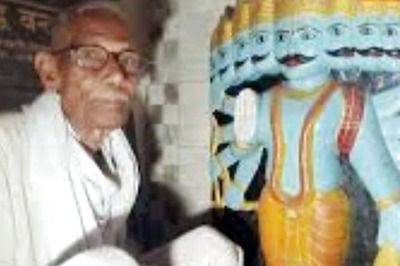
views
Buckle Appearance
The “LV” buckle on a fake belt is less consistent and sharp. Inspect the metallic “LV” buckle’s lettering, thickness, and consistency. Compared to an authentic belt, the “LV” buckle on a fake is often rounded, not straight, not as sharply or finely cut, and too thick or thin. Look at the buckle’s color, too. The “LV” logo might be duller than a real “LV” logo and the hue may look off. For instance, a fake gold “LV” logo might be too brassy.
Buckle Placement
The “LV” buckle is placed too far or close to the edge on fake belts. Look at where the “LV” buckle begins on the belt and compare it to a picture of an authentic belt. The buckle is always placed in the same spot near the end of the strap on real belts, while the placement varies on fakes. On real checkered belts, the buckle starts in the middle of the first full set of squares. Fakes might place the logo before or after the first set of squares.
Belt Edges
Fake belts have rounded or uneven edges that may be frayed. The ends of authentic Louis Vuitton belts are cut to have sharp, angled edges. Fakes often have rounded edges at the ends of the belt that aren’t as precisely cut as real belts. Fakes may also have bits of material and loose threads coming off the ends and sides of the belt. Louis Vuitton belts are luxury items that are expertly crafted. The sides and edges of the belt are clean and straight without frays or loose threads.
Stitching
The stitching on fake belts is large and uneven. Carefully inspect the stitches on the front and back of the belt. On authentic Louis Vuitton belts, the stitches are small, tight, and straight. On fakes, the stitches might be more noticeable, look crooked, and appear frayed. Compare the color of the stitching to a real belt’s stitching, too. Fake belts might use different colored stitches.
Pattern
Fake belts have an inconsistent or unsymmetrical pattern. Whether you’re looking at a belt with the iconic monogrammed pattern or the checkered print, authentic Louis Vuitton belts are perfectly printed and symmetrical. The designs on inauthentic belts might be too large or small, be printed off-center, or start in the wrong place. On real monogrammed print belts, the large flowers and “LV” are centered on the belt. The smaller flowers are cut off at the same place on the top and bottom. On real checkered belts, the buckle end of the belt starts with half of the squares cut off. The patterns on fake Louis Vuitton belts are often less clear and detailed than real belts. All authentic Louis Vuitton belts with the same pattern have the same exact print; there are no variations in sizing or symmetry.
Belt Stamp
Inauthentic belts have less clear inscriptions on the back of the strap. “Louis Vuitton,” “Paris,” “made in Spain,” and the belt’s model number and size are clearly inscribed on the back of authentic belts. On fake belts, the inscriptions may be less clear, off-center, or missing information. Most Louis Vuitton belts are made in Spain, not France. If your belt says “made in France,” it’s likely a fake. Pay close attention to the lettering. The font on authentic belts is slender and consistent with very circular “o”s.
Model Number
Model numbers on fake belts might not match the actual belt’s number. Search for the belt’s model number online, which is the code on the back of the strap that starts with an “M” or “N” and is followed by 4 to 5 numbers. If a different belt pops up than the one you have, your belt might be a fake.
Back of the Buckle
Fake buckles use raised screws and may say “Louis Vuitton.” Authentic belts use flat, round screws on the back of the “LV” buckle while fake belts might have raised or worn screws. Many fakes also print “Louis Vuitton” on the buckle, which authentic belts do not have.
Belt Holes
The belt holes on fake belts are unevenly cut or look worn. Look at the belt holes to see if they are perfectly circular and cleanly cut with no excess material around them. If the holes look scraggly or not precisely cut, the belt is likely inauthentic.
Material
Inauthentic belts are made out of poorer-quality leather or plastic. Feel and smell the belt to determine its quality. Authentic Louis Vuitton belts are made out of premium leather, so they feel soft and luxurious and have a pleasant smell. Fake belts might feel rough or rubbery and have a chemical or plastic odor. Most authentic Louis Vuitton belts have a slight texture due to the leather, but they still feel soft and smooth. Some real belts are made out of other materials besides leather, like canvas.
Packaging
Fake belts come in the wrong color box and may not include a dust bag. Authentic Louis Vuitton belts come in the company’s iconic orange boxes that have a fabric-like texture and “Louis Vuitton” printed on the center. The belt comes in a cotton dust bag with “Louis Vuitton” printed on the center, too. Fake belt boxes might be too small or large, look too dull or vibrant, or print “Louis Vuitton” off-center or in the wrong font. Real belts come in boxes that you open like a drawer. Fake belts might come in boxes that open like a regular shoe box. If you’re buying a belt second-hand, it might not come in the original packaging. Check out other areas of the belt to determine if it’s real or fake.
Receipt
Fake belt receipts have spelling mistakes or list incorrect information. Carefully inspect the receipt that comes in the box to make sure it lists the correct belt model and color, Louis Vuitton address, and contact information. If you notice incorrect information or spelling mistakes, the belt might be fake.




















Comments
0 comment